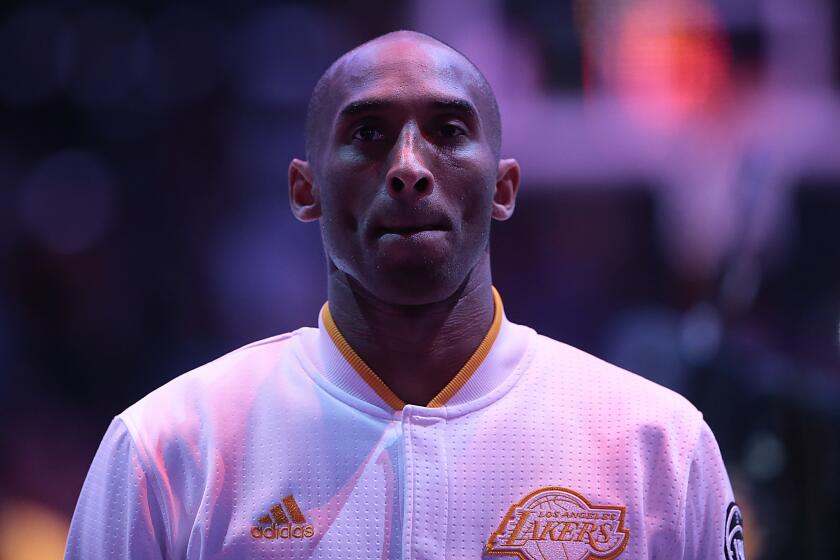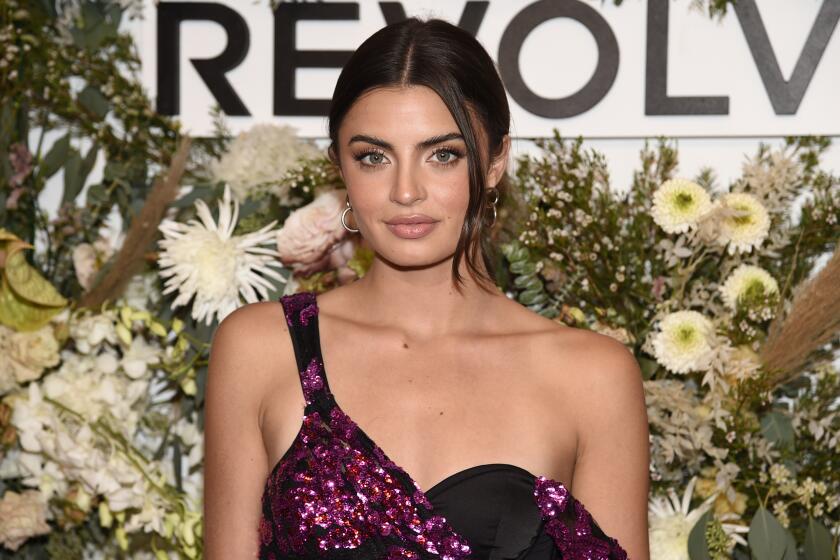Kobe Bryant short film ‘Dear Basketball’ plays like a eulogy from the man who made it
- Share via
The mood of Kobe Bryant’s Oscar-winning animated short film, “Dear Basketball,” always seemed a little curious. Part love letter to his sport, it was also part eulogy.
“My heart can take the pounding,” Bryant said in his narration, over a quiet moment in John Williams’ poignant score. “My mind can handle the grind. But my body knows it’s time to say goodbye. And that’s OK. I’m ready to let you go.”
The 2017 film serves as a bit of tragic poetry following the death of Bryant, daughter Gianna and seven other people in a Calabasas helicopter crash Sunday.
The project began as a letter he penned in 2015 for the Players’ Tribune announcing his retirement from the NBA. Bryant created the production company Granity Studios — originally Kobe Studios — with ambitions to create books, TV series and even feature films. “Dear Basketball” was its first effort.
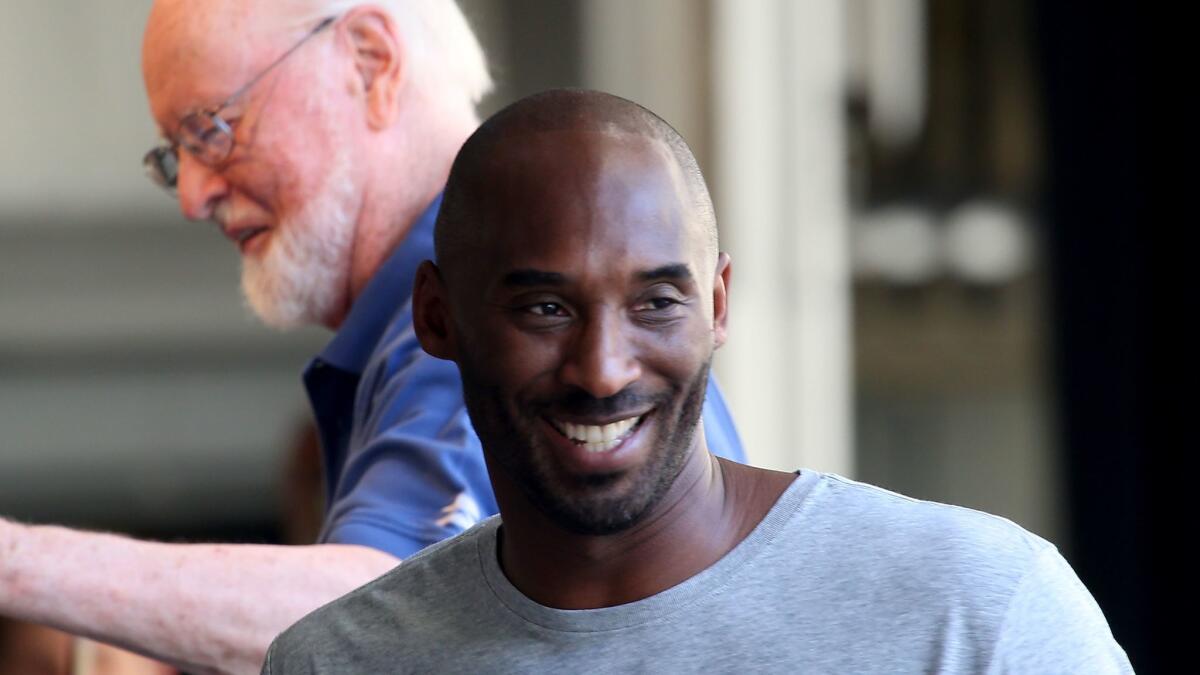
Kobe Bryant’s Oscar-winning short film, “Dear Basketball,” was made available to view online Monday, but now it has been taken down.
“I enjoy the process of creating,” Bryant said in previously unpublished comments from a Times interview in 2017, when he discussed commissioning John Williams to compose music for the short film. “I truly find it fascinating that we can put a story together, and then you can have different interpretations of that story. ... How do we create something that, like ‘Dear Basketball,’ you can look at it and feel a certain way, and then someone else can look at it and feel a certain way? Or you may look at it 20 years from now and have a different point of view on it?
“How do we create things like that, that move people emotionally, that challenge them, that make them go a little deeper? I’m just absolutely fascinated by that art, and how to make more.”
The short traces Kobe from boyhood, shooting hoops with his dad’s rolled-up tube socks, to his glory days with the Lakers. The hand-penciled animation by Disney veteran Glen Keane visually bonds adult Kobe to child Kobe — at one point, the two dribble side by side. It ends with Bryant walking out of the game and into the light. His final words: “Love you always. Kobe.”
On Monday, Keane issued a statement in which he said Bryant’s “work ethic challenged you. His intense sincerity inspired you. His playful openness disarmed you. Who could not love him?” He called Bryant’s relationship with Gianna “the most beautiful picture of a father’s love for his daughter.
Complete coverage of the death of Kobe Bryant, his daughter, Gianna, and seven others in a helicopter crash.
“We were so honored to work with him and even from time to time be surrounded by his wonderful family while making Dear Basketball. Words fail us.”
At the time some critics dismissed “Dear Basketball” as a vanity project. (“It is the worst short film I have ever seen nominated for an Academy Award,” wrote IndieWire’s Chris O’Falt. “This piece of hagiography is completely empty of form and substance.”)
But beyond Bryant’s all-star collaborators, the film had something else at play — something universal and mournful.
“It’s not an egomaniacal trip in any way,” John Williams told The Times in 2017. “I don’t feel that at all. I think you feel Kobe’s service to his muse, and the positivity of what he’s doing. And he’s about the farthest thing from a megalomaniac as you can get.”
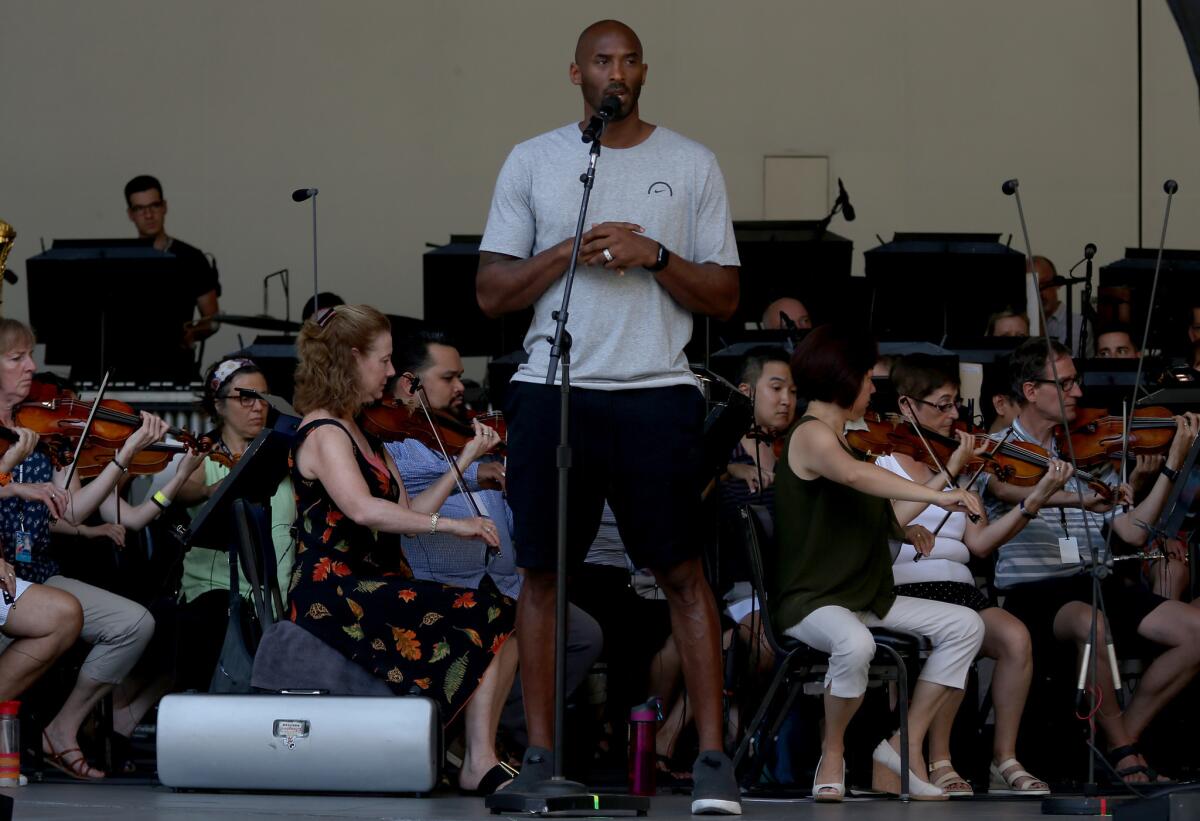
Bryant had asked the five-time Oscar-winning composer to score “Dear Basketball” because Bryant had been a fan since childhood, “tying a towel around my neck and flying around to the ‘Superman’ theme,” he said. He rocked his baby daughters to sleep to the music of “Hedwig’s Theme” from the “Harry Potter” films. Williams’ score for “Dear Basketball” harkened to the nostalgic heartache in his music for “Empire of the Sun” and the American nobility in scores like “Lincoln.”
“It is elegiac,” Williams said, “but it isn’t weepy. It strikes its own manner of saluting the man and the game and the accomplishments with a lot of modesty. I think it’s very touching, and in the end, that may be its highest achievement — that it’s able to praise this man the way it does, without a lot of false vanity or hubris that could easily have spilled into it.”
For Bryant, the film was about “the beauty of finding what it is that you love to do, and then finding the beauty of knowing that, you know, you will not be able to do that forever.”
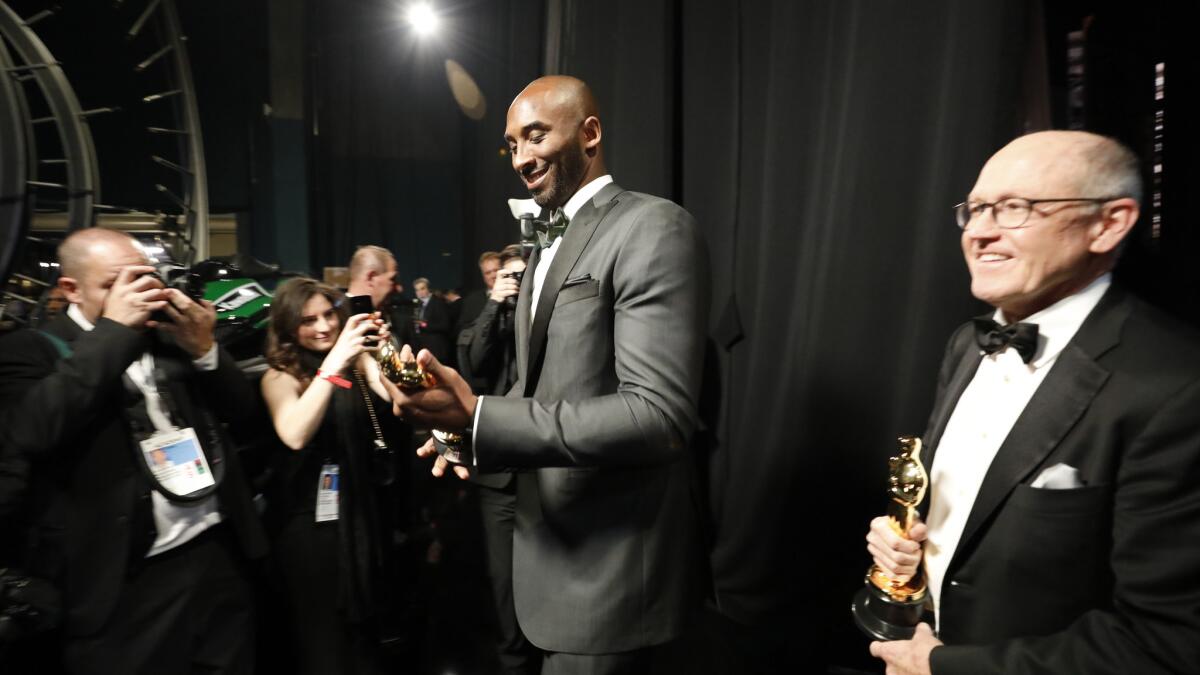
More to Read
The biggest entertainment stories
Get our big stories about Hollywood, film, television, music, arts, culture and more right in your inbox as soon as they publish.
You may occasionally receive promotional content from the Los Angeles Times.
